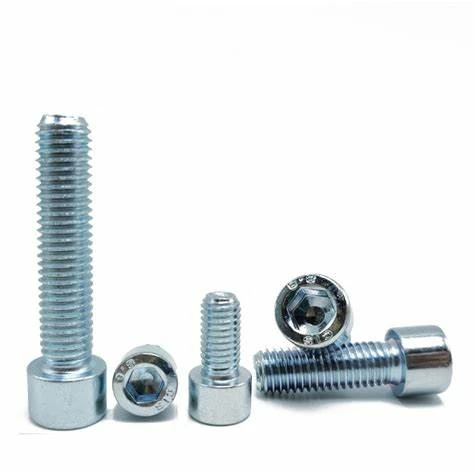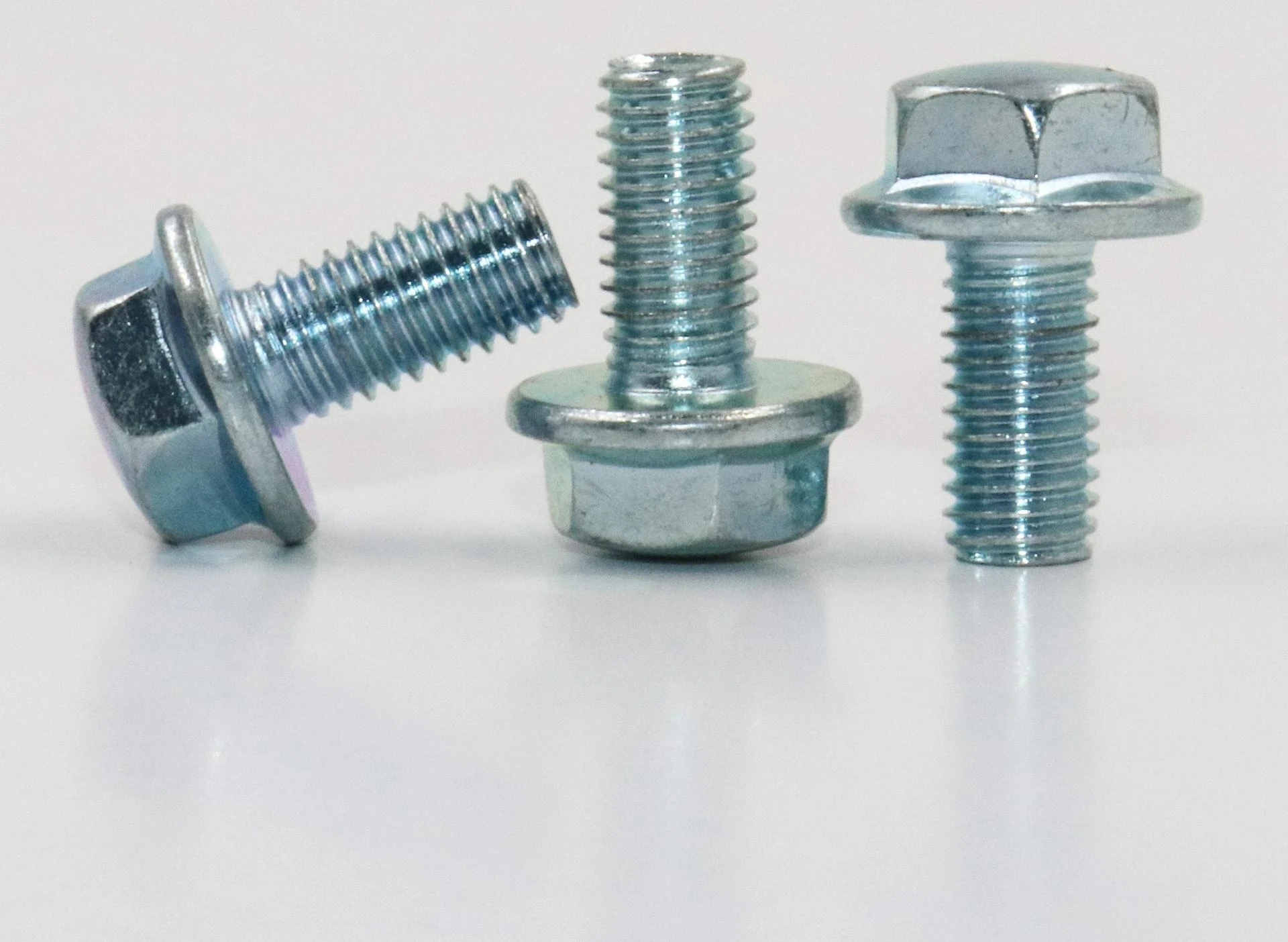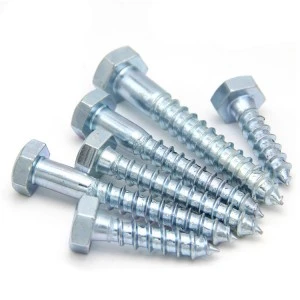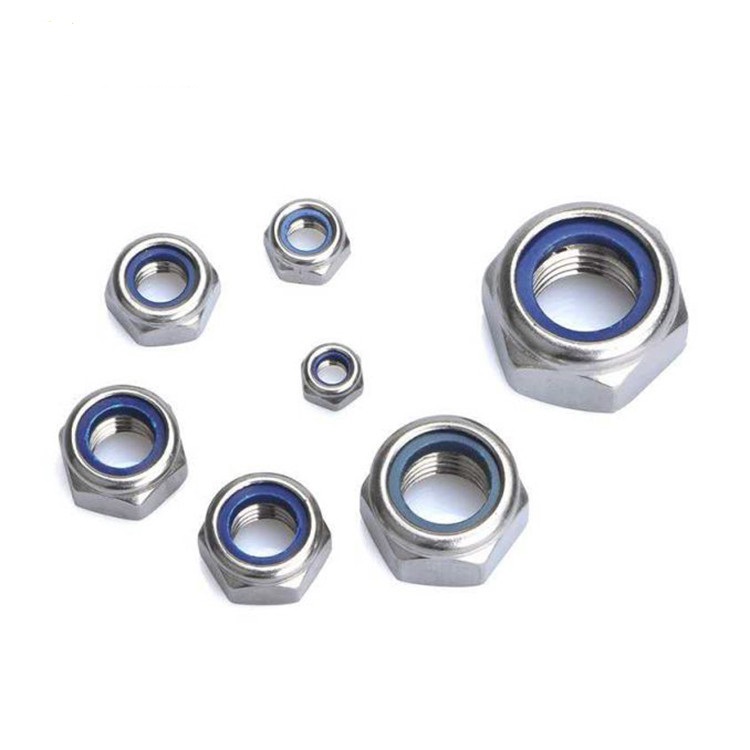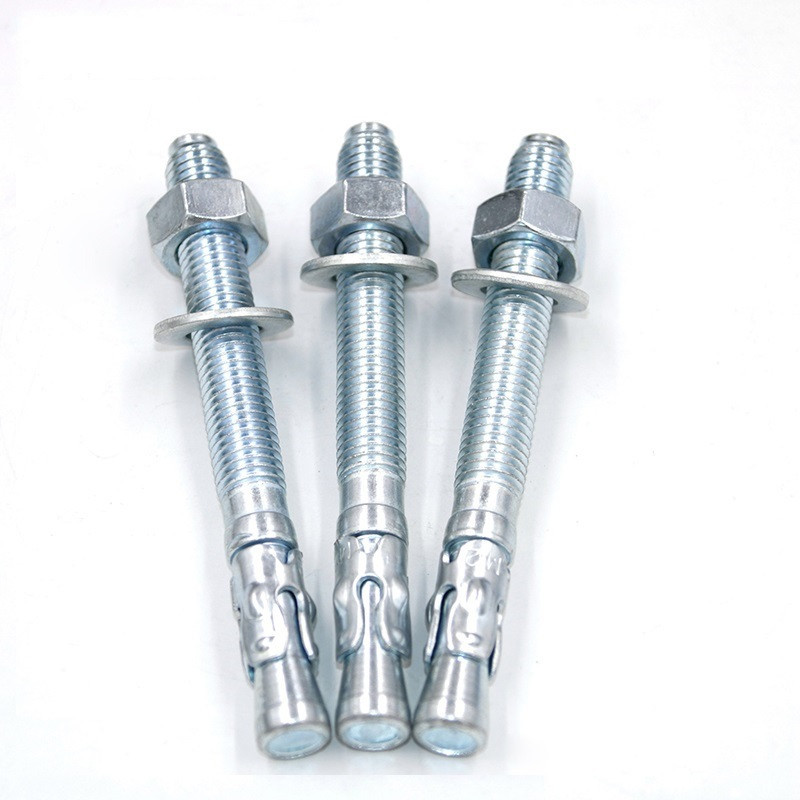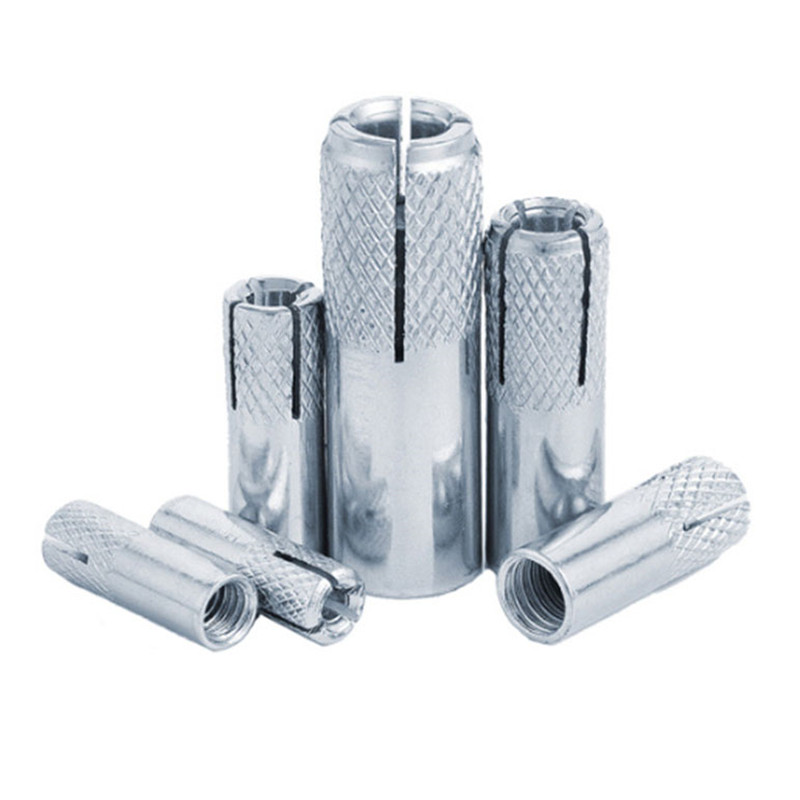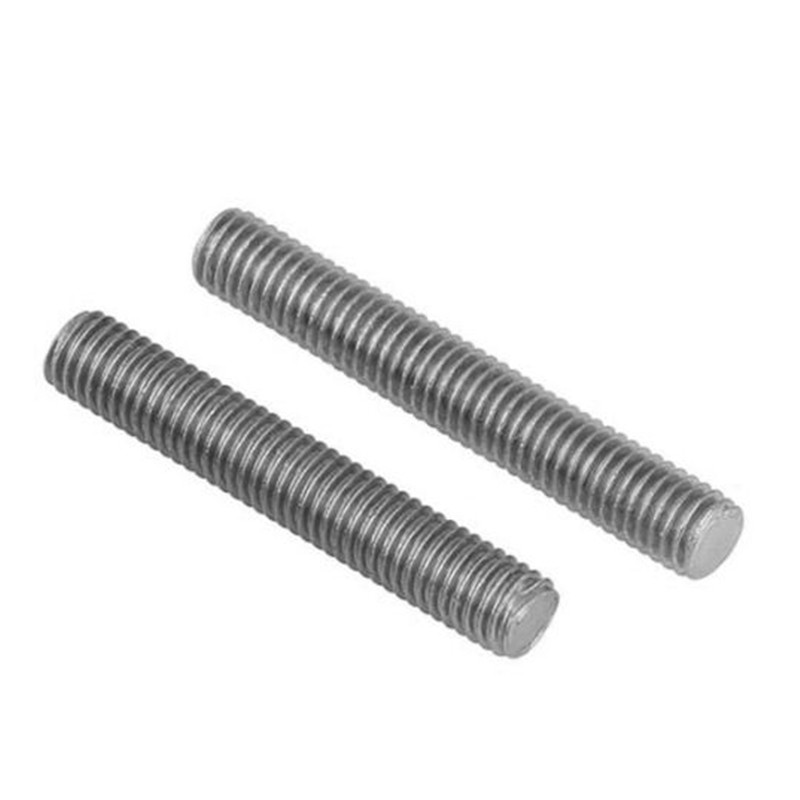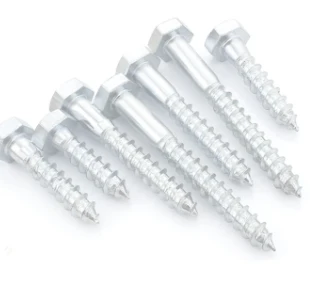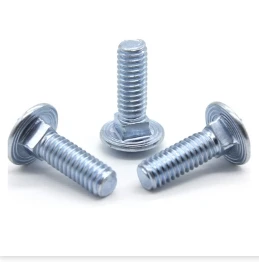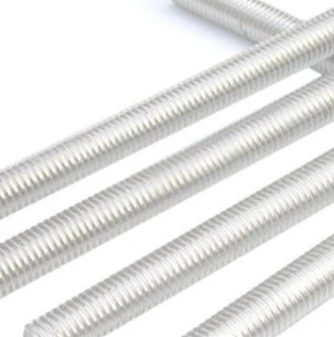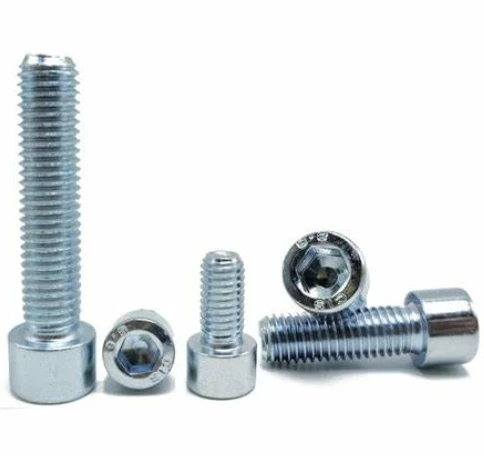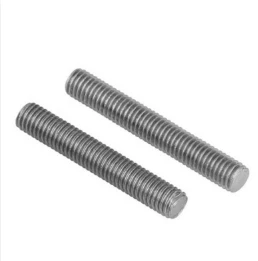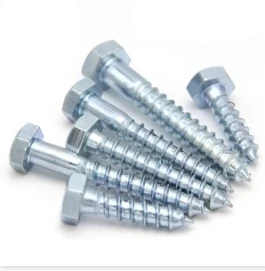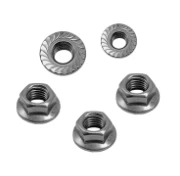Understanding Flange Bolt in Industrial Applications
The Flange Bolt stands as a critical component in countless industrial fastening applications, distinguished by its integrated washer-like flange beneath the head. This design feature distributes the bearing load over a wider area, eliminating the need for a separate washer and significantly reducing the risk of loosening due to vibration or thermal expansion. The evolution of industrial processes, particularly in sectors requiring high integrity connections, has driven an increasing demand for specialized fasteners. Current industry trends emphasize enhanced material strength, superior corrosion resistance, and optimized geometries to withstand extreme operational conditions. From heavy machinery to intricate pipeline systems, the reliability of these bolts is paramount for ensuring structural integrity, operational efficiency, and worker safety, making their selection and manufacturing precision vitally important for engineers and procurement specialists alike.
The Precision Manufacturing Process of Flange Bolt
The manufacturing of a high-quality Flange Bolt involves a meticulous multi-stage process designed to ensure superior strength, dimensional accuracy, and extended service life. Typically, this process begins with selecting premium-grade materials such as carbon steel (e.g., 10B21, 35K), alloy steel (e.g., 40Cr, 35CrMo), or stainless steel (e.g., SUS304, SUS316), chosen for their specific mechanical properties and resistance to environmental factors. The primary manufacturing processes include cold heading or hot forging, depending on the bolt's size and material. Cold heading precisely forms the bolt head and flange, minimizing material waste and enhancing grain structure, which contributes to higher tensile strength. For larger bolts or specialized alloys, hot forging is employed, allowing for better material flow and the creation of complex shapes. Subsequent steps involve thread rolling, which not only forms precise threads but also work-hardens the surface, increasing fatigue resistance.
Following thread rolling, heat treatment processes such as quenching and tempering are critical for achieving the desired hardness, strength, and ductility, adhering to standards like ASTM F593 or ISO 898-1. Surface treatments, including galvanization, zinc plating, or Dacromet coating, are then applied to provide enhanced corrosion protection, extending the bolt's service life in corrosive environments. Throughout the entire process, stringent quality control measures are implemented. This includes in-line dimensional checks, material composition analysis using XRF or SPECTRO, mechanical property testing (tensile strength, yield strength, hardness), and non-destructive testing for defects. Adherence to international standards such as ISO 4017, ANSI/ASME B18.2.1, and DIN 6921 ensures interchangeability and reliability across global applications. These robust manufacturing and inspection protocols are fundamental to producing a Flange Bolt that delivers exceptional performance and contributes to energy savings by preventing leakage and ensuring robust connections in critical systems. Applicable industries include petrochemical, metallurgy, energy, railway, and water supply & drainage.

Key Technical Specifications and Performance Parameters
Selecting the appropriate Flange Bolt necessitates a thorough understanding of its technical specifications and performance parameters, which directly impact its suitability for a given application. These parameters include material grade, tensile strength, yield strength, hardness, and various dimensional specifications. For instance, common strength grades for metric flange bolts include 8.8, 10.9, and 12.9, each indicating specific minimum tensile and yield strengths (e.g., a Grade 10.9 bolt has a minimum tensile strength of 1040 MPa). Imperial bolts typically adhere to SAE grades or ASTM standards. The integrated flange head, designed to distribute load more effectively than standard hex bolts, typically has a diameter approximately 2.2 to 2.5 times the nominal diameter of the bolt shank. This enlarged bearing surface is crucial for preventing embedding in softer materials and for maintaining joint integrity under dynamic loads.
Beyond mechanical properties, surface finish and thread type (e.g., coarse, fine, or specialized threads like UNJ for aerospace) are vital considerations for performance and environmental resistance. Our Flange Bolt products are designed and manufactured to surpass industry benchmarks, providing superior clamping force and fatigue life. The following table illustrates typical specifications for various common types of flange bolts, offering a quick reference for engineers and purchasing managers. This data is critical for precise engineering design and ensuring long-term operational reliability in diverse industrial environments, from automotive assemblies to structural steel connections.
Strategic Applications and Industry Benefits
The robust design and superior performance of the Flange Bolt make it indispensable across a wide spectrum of industrial applications where secure and reliable fastening is paramount. In the automotive sector, these bolts are extensively used in engine components, chassis assemblies, and wheel mounting, where their resistance to vibration and high clamping force ensure safety and longevity. Within the petrochemical industry, stainless steel or specialty alloy Flange Bolt are critical for securing pipelines, valves, and pressure vessels, particularly in environments exposed to corrosive chemicals and extreme temperatures. Their enhanced corrosion resistance, often augmented by advanced coatings, significantly extends the operational life of infrastructure, reducing maintenance costs and preventing hazardous leaks.
In the metallurgy and heavy machinery sectors, these bolts are vital for assembling large structural elements, conveyor systems, and mining equipment, where they must withstand immense static and dynamic loads. The integrated flange ensures even load distribution, minimizing localized stress concentrations and preventing embedding into softer materials, which is crucial for the integrity of heavy-duty joints. Furthermore, in water supply and drainage systems, as well as general construction, Flange Bolt are preferred for connecting pipe sections, pumps, and other fluid handling components. Their self-locking capability, stemming from the broader bearing surface, contributes to energy efficiency by maintaining sealed connections, preventing leaks, and ensuring optimal system performance. This widespread adoption underscores their versatility and the significant operational benefits they provide in demanding industrial settings.

Unrivaled Technical Advantages and Innovation
Our commitment to engineering excellence sets our Flange Bolt apart from conventional fasteners. A primary technical advantage lies in the integrated flange, which eliminates the need for separate washers, streamlining assembly processes and reducing inventory complexities. This design inherently provides a larger bearing surface, significantly enhancing the load distribution and minimizing the risk of localized stress concentrations on the fastened material. This is particularly beneficial in applications involving softer materials or those subject to dynamic loads and vibrations, where it maintains joint integrity and prevents embedding. Furthermore, our bolts are engineered with optimized thread profiles and precision-rolled threads, ensuring superior engagement with mating components and maximizing resistance to thread stripping and fatigue failure.
Innovation in material science and surface treatments is another cornerstone of our technical superiority. We utilize advanced heat treatment protocols to achieve precise hardness and ductility profiles, which are crucial for ensuring the bolt's strength without compromising its resistance to brittle fracture. Our proprietary surface coatings, developed through extensive R&D, offer exceptional corrosion resistance, extending the operational life of the Flange Bolt even in highly aggressive environments, such as marine, chemical processing, or extreme weather conditions. This extended lifespan translates directly into reduced maintenance intervals and lower lifecycle costs for our clients. We continuously invest in advanced manufacturing technologies and rigorous testing to ensure that each bolt not only meets but exceeds international performance standards, providing an unparalleled level of reliability and safety for critical industrial applications.
Customized Flange Bolt Solutions for Complex Demands
Recognizing that standard fastening solutions may not always suffice for unique industrial challenges, we specialize in providing highly customized Flange Bolt solutions. Our engineering team collaborates closely with clients from the initial concept phase through to production, offering expert consultation on material selection, design optimization, and surface treatments tailored to specific application requirements. Whether it's a need for non-standard lengths, specialized thread forms, unique head configurations, or bespoke material alloys for extreme temperature or corrosive environments, our capabilities are designed to meet the most stringent specifications. This bespoke approach ensures that the fastener not only fits perfectly but also performs optimally under the exact operational conditions it will encounter.
Our customization process begins with a detailed assessment of the client's performance criteria, environmental factors, and assembly processes. Utilizing advanced CAD software and finite element analysis (FEA), we can simulate real-world stresses and optimize designs to enhance the durability and reliability of the custom Flange Bolt. This proactive engineering mitigates potential failure points before manufacturing begins. Furthermore, we offer a wide range of custom coating options, including specialized polymers, ceramics, or multi-layered systems, to provide unparalleled resistance to wear, chemicals, or electrical conductivity, as required. This comprehensive customization service ensures that our clients receive a fastening solution precisely engineered for their unique challenges, delivering superior performance and long-term cost efficiencies.
Real-World Application Success Stories
Our track record of success is built on delivering high-performance Flange Bolt solutions that meet and exceed customer expectations in demanding industrial environments. One notable case involved a major oil and gas refinery in the Middle East facing persistent issues with fastener corrosion and loosening in their offshore drilling platforms, leading to costly downtime and safety concerns. After extensive consultation, we engineered custom 316L stainless steel Flange Bolt with a specialized anti-corrosion coating designed to withstand highly saline and abrasive conditions. The integrated flange design also provided superior vibration resistance compared to their previous solutions. Following the implementation, the refinery reported a 40% reduction in fastener-related maintenance incidents over two years, resulting in significant operational savings and improved safety compliance. This project underscored our capability to deliver robust, long-lasting solutions for extreme environments.
Another compelling example comes from a leading European automotive manufacturer, which sought to improve the long-term integrity of critical engine components while reducing assembly time. Their previous approach utilized a standard hex bolt with a separate washer, which was prone to loosening under high engine vibrations and required a two-step assembly process. We introduced our advanced Grade 10.9 Flange Bolt, featuring an optimized flange design and a proprietary thread-locking patch. The single-piece design expedited assembly, while the improved clamping force and vibration resistance significantly enhanced the reliability of the engine components. Post-implementation, the manufacturer observed a 15% increase in assembly line efficiency and a documented zero-failure rate related to these fasteners in post-production testing, validating the superior performance and economic benefits of our integrated fastening solutions.
Ensuring Quality: Certifications, Testing, and Trust
Our unwavering commitment to quality is the cornerstone of our operations, ensuring that every Flange Bolt manufactured meets the highest industry standards and client expectations. We hold prestigious certifications, including ISO 9001:2015 for quality management systems, which attests to our systematic approach to consistent product delivery and continuous improvement. Our products frequently comply with other critical certifications relevant to specific industries, such as CE marking for European markets and adherence to various ASTM, DIN, and JIS standards. These certifications are not merely badges; they represent our adherence to stringent international protocols for design, manufacturing, and quality assurance. Each batch of Flange Bolt undergoes rigorous testing in our state-of-the-art laboratory, equipped with advanced instruments for tensile testing, hardness testing, impact testing, and salt spray corrosion testing.
Beyond standardized testing, we implement specialized quality checks such as magnetic particle inspection for surface defects and ultrasonic testing for internal flaws, ensuring the structural integrity of every bolt. Our average defect rate, consistently below 0.01%, reflects our commitment to precision and reliability. We stand by the durability and performance of our products, offering comprehensive warranties that provide peace of mind for our clients. Our extensive service history, spanning over two decades in the fastener industry, and long-standing partnerships with leading global corporations are testaments to the trust and reliability we have cultivated. We believe that true trustworthiness is built on consistent quality, transparent processes, and unwavering dedication to customer satisfaction.
Frequently Asked Questions (FAQ) about Flange Bolt
-
Q: What is the primary advantage of a Flange Bolt over a standard hex bolt with a separate washer?
A: The primary advantage is the integrated flange, which distributes the load over a wider area, eliminating the need for a separate washer. This design feature reduces assembly time, lowers the risk of lost or misplaced washers, and provides superior vibration resistance, leading to a more secure and reliable joint. It also minimizes embedding into softer materials.
-
Q: What materials are commonly used for Flange Bolt, and why?
A: Common materials include carbon steel (for strength and cost-effectiveness), alloy steel (for higher strength and fatigue resistance), and stainless steel (for corrosion resistance in harsh environments). The choice depends on the specific application's load requirements, environmental conditions, and desired service life. Specialty alloys are also used for extreme conditions.
-
Q: How do you ensure the corrosion resistance of your Flange Bolt?
A: We ensure corrosion resistance through the selection of appropriate materials like stainless steel and by applying advanced surface treatments such as zinc plating, hot-dip galvanizing, Dacromet, or Geomet coatings. These coatings provide a sacrificial or barrier layer that protects the base metal from environmental degradation, extending the bolt's lifespan significantly.
-
Q: Can Flange Bolt be customized for specific applications?
A: Absolutely. We offer extensive customization capabilities, including non-standard dimensions, specific thread types, unique head designs, and specialized material grades or coatings. Our engineering team works closely with clients to develop tailored solutions that meet precise performance requirements for unique industrial challenges.
Global Delivery and Dedicated Customer Support
Understanding the critical timelines in industrial projects, we have established a robust supply chain and logistics network to ensure timely and reliable delivery of our Flange Bolt products worldwide. Our standard delivery cycles are highly competitive, typically ranging from 2-4 weeks for standard products, with expedited options available for urgent requirements. For customized orders, lead times are communicated transparently and are dependent on complexity and volume, with clear milestones set to keep clients informed throughout the production process. Our commitment extends beyond delivery; we provide comprehensive pre-sales consultation and dedicated after-sales support to address any technical queries or operational challenges.
Our customer support team comprises experienced technical specialists who are readily available to assist with product selection, application guidance, and troubleshooting. We offer various channels for support, including direct phone lines, email, and online support portals, ensuring rapid response times. This continuous support, combined with our robust product warranty, underscores our dedication to long-term client relationships and operational excellence. By choosing our Flange Bolt, you partner with a manufacturer committed to delivering not just a superior product, but a complete solution backed by unparalleled service and global logistical capabilities, ensuring your projects stay on track and perform optimally.
References
- ASM International. (2002). ASM Handbook, Volume 1: Properties and Selection: Irons, Steels, and High-Performance Alloys. Materials Park, OH: ASM International.
- American Society of Mechanical Engineers. (2018). ASME B18.2.1: Square and Hex Bolts and Screws (Inch Series). New York, NY: ASME.
- International Organization for Standardization. (2014). ISO 898-1: Mechanical properties of fasteners made of carbon steel and alloy steel — Part 1: Bolts, screws and studs with specified strength classes — Coarse thread and fine pitch thread. Geneva, Switzerland: ISO.
Post time: жнів . 11, 2025 14:20


